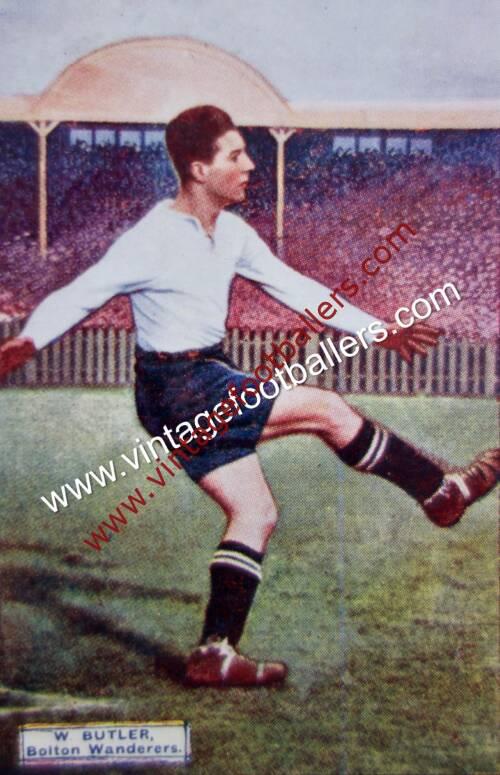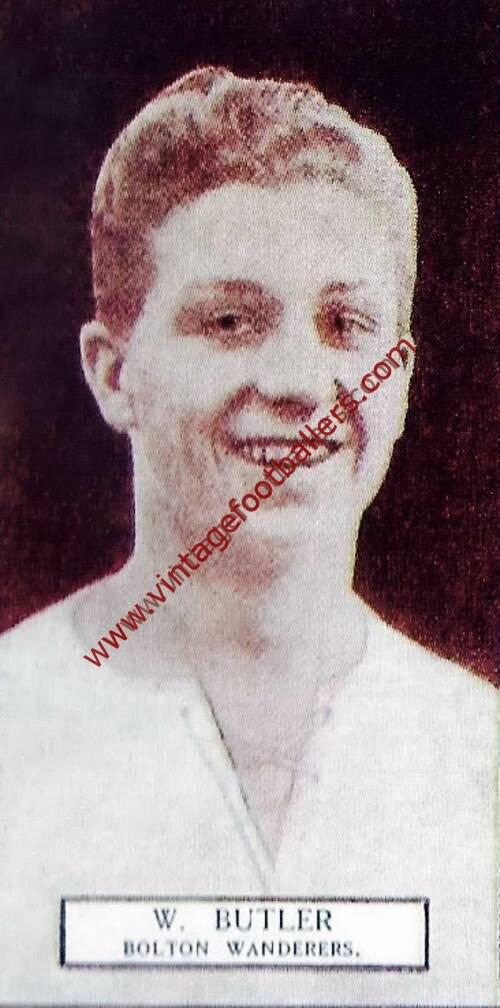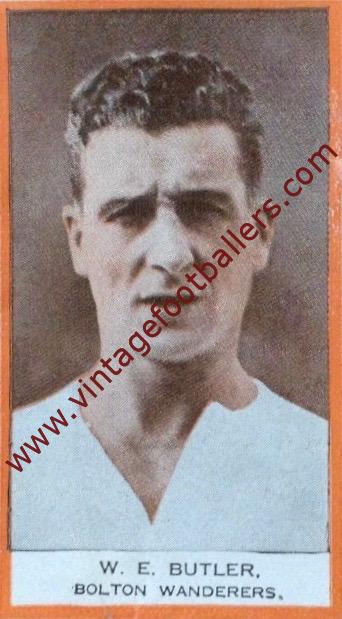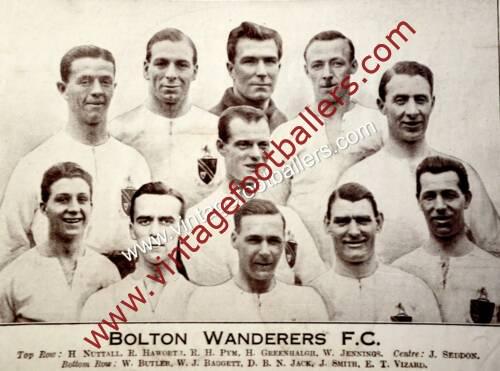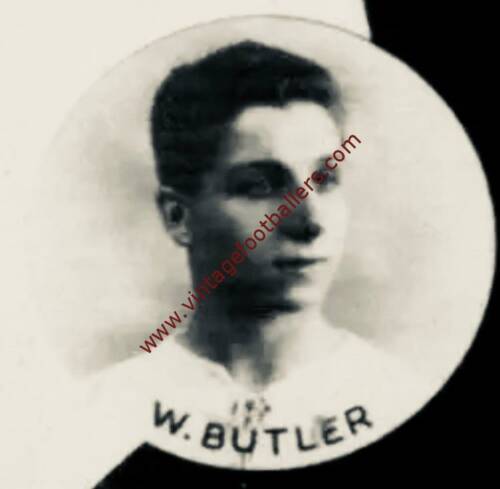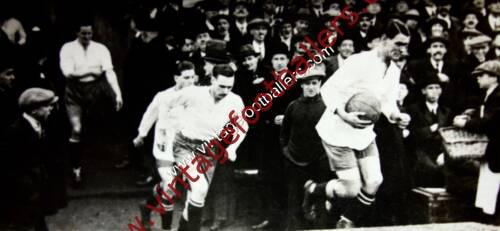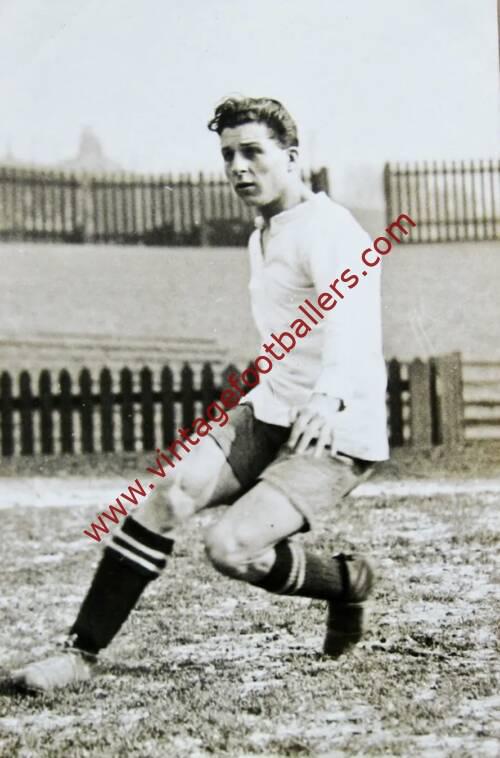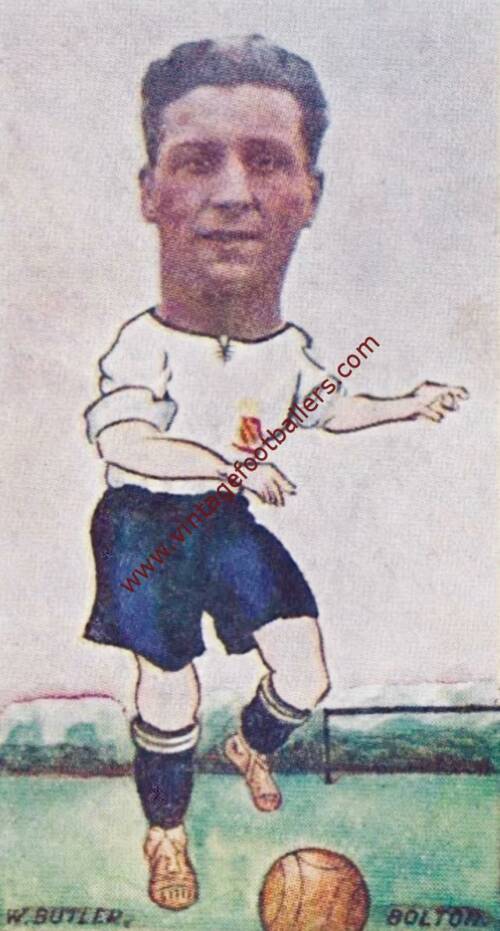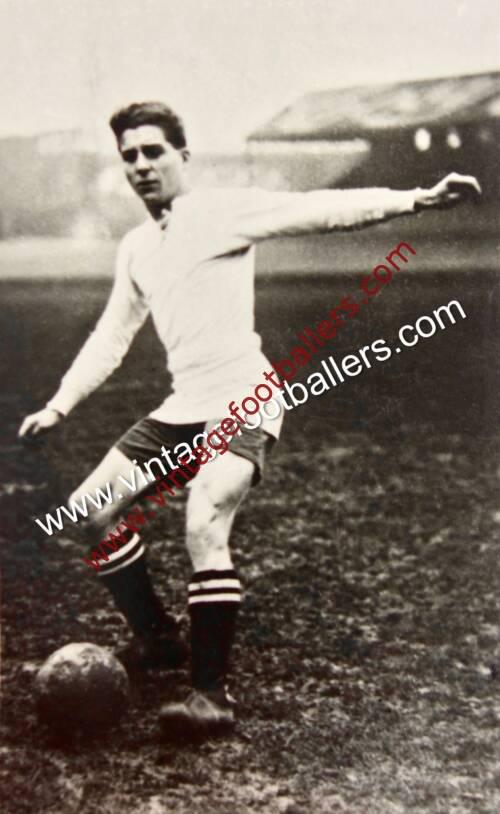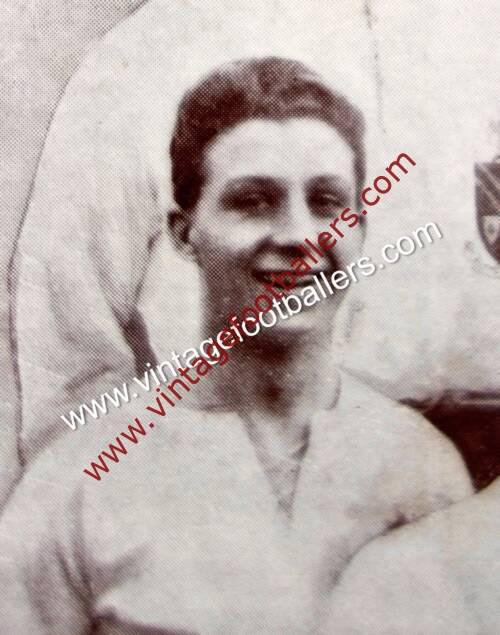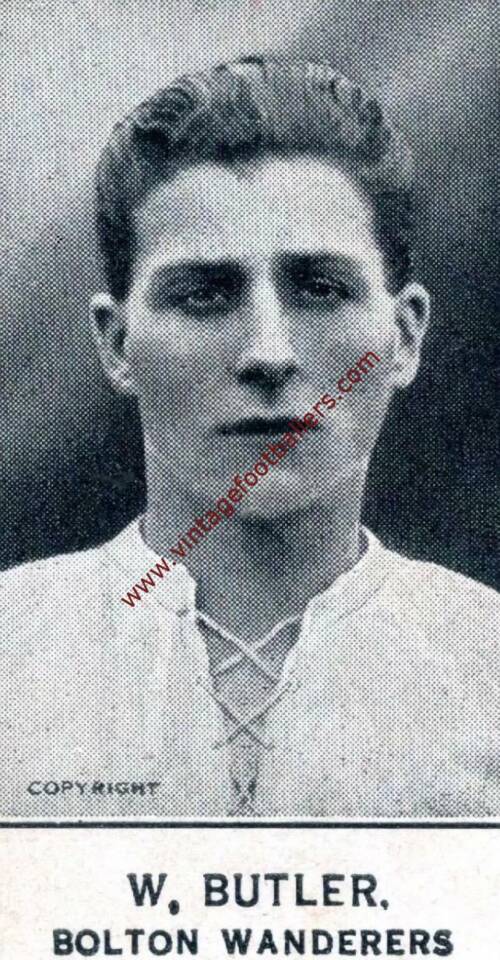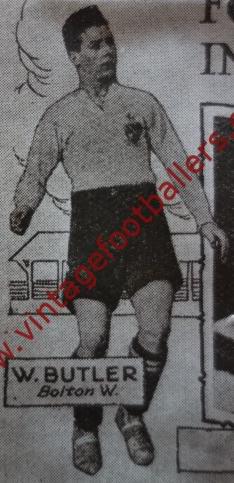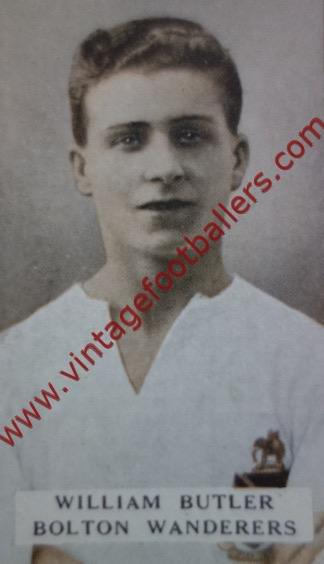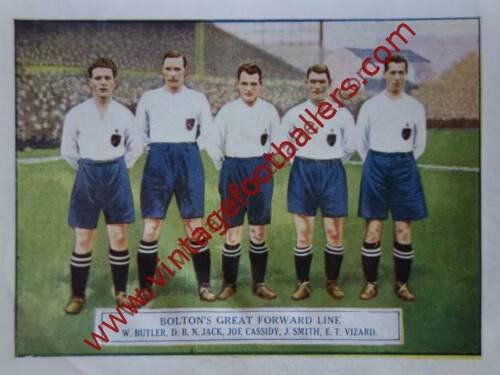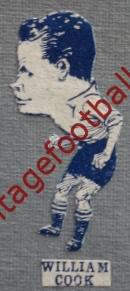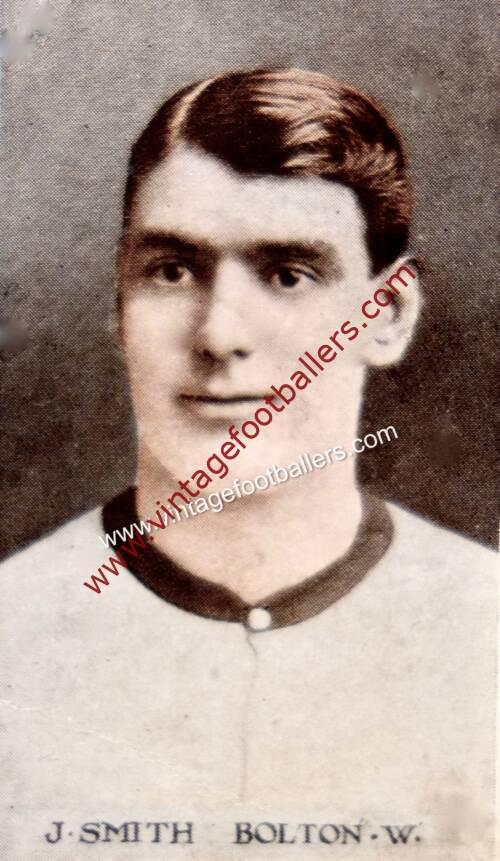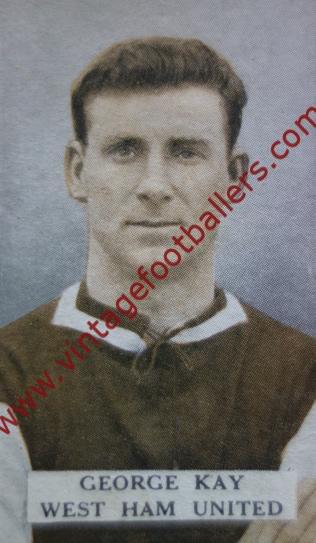Please choose your photo size from the drop down menu below.
If you wish your photo to be framed please select Yes.
Note: 16″x 20″not available in a frame.
Images can also be added to accessories. To order please follow these links
£8.95 – £49.95
Please choose your photo size from the drop down menu below.
If you wish your photo to be framed please select Yes.
Note: 16″x 20″not available in a frame.
Images can also be added to accessories. To order please follow these links
Atherton, Lancashire born outside right Billy Butler had never played for any form of organised football team prior to joining the Army. He played as a centre-forward for his regiment and on leaving the Army he joined his hometown club Atherton Collieries in 1919. He moved to Bolton Wanderers in April 1921, making his Football League debut against Chelsea in January 1922 and, on moving to the right wing, soon established himself. He played in the 1923 FA Cup Final victory over West Ham United, the famous first Wembley “White Horse” Final, and the following year, on 12th April 1924, made his England debut against Scotland at Wembley in a 1-1 draw.It was to be his only cap for England.
In the following two seasons he was a key member of Bolton’s teams that finished fourth and third in the League in 1923-24 and 1924-25, and he was back at Wembley again for the 1926 FA Cup Final win over Manchester City, and picked up his third winners medal in 1929, scoring the opening goal in the 2-0 defeat of Portsmouth. In 1926-27 he missed only three matches and scored a career season best 10 goals, including a hat-trick in a 3-1 win over Derby County on Christmas Day 1926, as Bolton Wanderers finished fourth in the League Championship. In 1930-31 he missed only one match but by now Bolton were in decline. On Bolton’s relegation in 1933, Butler asked for a transfer and that June left to join his former Bolton team-mate Joe Smith, who by now was manager of Reading. He had played 449 games for Bolton, scoring 74 goals. Butler played two seasons at Reading as they finished 3rd and 2nd in Division Three (South) narrowly missing out on promotion. Butler scored 16 goals in 67 appearances.
In August 1935, Smith left to manage Blackpool and Butler retired from playing and took over the reins at Reading, and carried on with the good work Smith had started. Reading never finished below 6th place in Division Three (South) during Butler’s tenure and were heading for another top five finish when he resigned in February 1939.
He became manager of Guildford City (and turned out for them), but then the Second World War intervened and Butler joined the RAF as a PT instructor. With the war over, Butler was appointed manager of Torquay United in August 1945, but left Plainmoor in May 1946 before League football had resumed. He subsequently moved to South Africa to manage Johannesburg Rangers, where he discovered the future Wolves defender Eddie Stuart and future Blackpool and England left winger Bill Perry. He was later a coach for the Pietermaritzburg & District Football Association and then a coach for the Rhodesian Football Association.
NB in the photograph he watches as Billy Gillespie of Sheffield United clears in the 1923 FA Cup semi final at Old Trafford on 24th March 1923. Bolton won 1-0 in front of 72,500 spectators.
| Weight | N/A |
|---|
